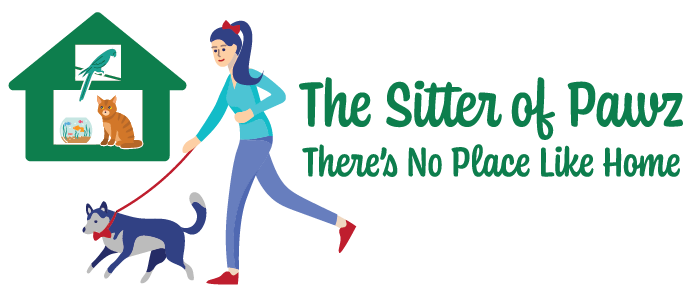Potty Training Tips & Tricks
So, you just got a new four-legged buddy? That is wonderful! Soon, if you haven’t figured it out already, you will see why God makes them so cute!
“How do I potty train my puppy?” This is one of the biggest questions regarding new puppies that we get at The Sitter of Pawz. The first thing I tell my clients is that you need to have patience. Most people adopt a puppy when they are about 8 weeks old. The problem is that most puppies are not ready to begin potty training until they are around 12-16 weeks old. It is not until then that the pups have good control over their bowels & bladders and can “hold it.” However, if your puppy is older than 16 weeks, it might be more difficult to train him and could take more patience.
Experts recommend confining your puppy to a small kennel with just enough room for them to stand up and turn around. Dogs do not like living in their waste any more than we do. If they are given too much space, they feel like they can go in the back of the crate and “live” in the front of the crate. That is why it is important to keep your puppy kenneled when you are not able to keep a close eye on him. If you are home and not actively playing with your pup, it is a good idea to keep him on a leash so that he is close enough for you to recognize his signs. Once your puppy learns that the bathroom is outside you can allow him or her to have more freedom. When training your pup, it is important to get him on a schedule. Take him out first thing in the morning and then once every 30 minutes to an hour. Be sure to take him out after naps and always after eating. You need to try to feed the puppy and offer water on a regular schedule. Be sure to take away the food when he is done eating. Make sure he goes out right before bed and always right before he is left alone. Go with your pup and always take him to the same spot.
Pick a key phrase like “Go potty” or “Do your business” and say the key phrase over and over while you are outside. Save your excitement and praise until he is done so that you don’t startle him. When he is completely done praise him and give him a treat. Eventually you will fade out the treats and just tell him “Good potty outside” If he does have an accident, clean it up with a paper towel and take the paper towel to the area in your yard where you want him to go. Have him go with you to put the wet paper towel or poo in the potty spot. As you place the waste or the paper towel down, use the key phrase along with “outside” (put a rock on the paper towel so that it doesn’t blow away) “Potty OUTSIDE” Having him go to the same spot will help him recognize what you are wanting when you walk over to that spot. Be aware that dogs don’t always do all of their business outside at once. Sometimes they need time to explore and play. It is wise to stay outside awhile with your dog to make sure that they are all done. Many a pet parent has said, “I JUST took you outside 10 minutes ago”, in frustration. A nice walk around the neighborhood is also a great way to make sure he is all done.
Sniffing, circling, barking, or whining are all signs that your pup may have to go outside. If they are not in their crate a lot of dogs will even go up to the door and scratch on it. Several clients have put bells on their door or next to their door for the dog to ring when they want to go out. You can help your pup learn how to do this by touching his paw to the bells each time before going outside. Again, consistency is the key. Eventually he will start doing it himself.
Remember, you never want to punish a dog for having an accident. That will only teach the dog to fear you. If you catch your puppy in the act just clap your hands or make a loud noise to stop him. Grab him gently by the collar and take them outside saying “Go potty outside” When you go inside be sure to say, “Let’s go inside” that way the pup learns the words “outside” and “inside”. When your pup does have an accident, using an enzymatic cleaner instead of an ammonia-based cleaner can help eliminate odors that might make your pup go back to the same spot.
When crate training, it is important to make sure your pup is let out for drinks and potty breaks during the day. Most puppies can only hold it for a few hours. If he is going in his crate, it could mean that he is not able to hold it, and you might need more potty breaks. When you are working long hours, hiring a dog walking company, like The Sitter of Pawz, for a potty break is a big help. Before the puppy has had his full round of shots, it is not safe for them to go to a doggy day care where they could pick up something from another dog.
Congratulations on your new family member, and good luck with his training! There is nothing quite like the unconditional love of a dog.

